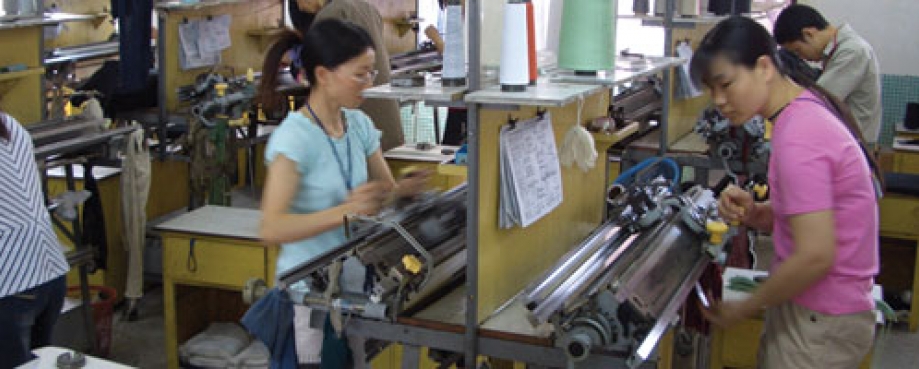
ETI's Decent Work Project in China aims to get workers and managers to start engaging with each other in constructive dialogue. Sounds straightforward enough, right?
It's trickier in China though - restrictions on freedom of association inhibit the development of a trusted process for workers to raise issues collectively with management - one of the things contributing to frequent strikes in the country.
As a quick summary of the project, over the past few years, workers and managers in 3 selected supplier factories in southern and eastern China have been trained on how to communicate constructively with each other to resolve workplace issues. Although efforts to build sustainable worker-management dialogue didn't always produce the hoped-for results, new mechanisms for such dialogue were established in one factory, with workers and management already bargaining over overtime premiums and a new productivity bonus system. There are also signs that workers reps are thinking strategically - for example, checking wage levels in other factories to build a case to management, or conducting surveys to give management a better sense of the wider views of the workforce.
As with any supply chain project that tries to break new ground, this has been a challenging, and at times painful, process. But the initial lessons that have come out of it, shared recently in an ETI China Forum meeting, should be useful for any company or organisation trying to establish worker-management dialogue structures, be they in China or anywhere else. They are summarised below:
DO remember getting supplier commitment is not a one-off event. Even if your suppliers have been persuaded of the business benefits up front, when times get tough, you will need to keep them on board. If they renege on a minimum level of commitment, it's worth considering walking away from the project to do something more constructive. Otherwise, you might find yourself sinking too much time and resources without much to show for it.
DO ensure local level decision-making. A key principle of the project was to make sure activities were responsive to the priorities of workers and management at each factory. So factory-specific ‘facilitation committees' were set up, made up of representatives from various stakeholders, including companies sourcing from the factories, factory management, and local community and voluntary groups. This made sure that activities were adapted to local needs, and so more sustainable.
DO work in a spirit of compromise. One of the hardest things to deal with in the beginning was mutual suspicion on the part of NGOs, trade unions and factory managers. Over a long period of trust-building, barriers came down and each party became more pragmatic in what they were hoping to get out of the project.
DO make sure all parties know what they're going to get out of this. Obviously suppliers need to know what the business case is - but workers too need to know why they should put their heads above the parapets with management.
DO try starting with elections and training of workers reps before getting into deeper discussions of code requirements and the law. One of the innovations of the facilitation committees was to begin with elections and training of elected worker reps to build workers' and management's experience with dialogue and compromise before they got into more difficult workers' rights issues. This method is suited to a Chinese context where the high requirements of the labour law routinely go unenforced, but is likely to build bridges in other contexts too.
DON'T underestimate the time it'll take to get your suppliers on board. Suppliers in China and other countries often agree to things asked of them by their customers without fully understanding the implications. Spending time to get suppliers to fully understand what worker involvement will look like in practice, what participatory training involves, and so on, will pay dividends in the long run. As one participant said, "If you don't get your suppliers on board at the start, the danger is that you'll do a lot of work and then hit a crunch point. It's about finding a balance between being ‘up front' without scaring them."
DON'T underestimate the workers. It's a myth that Chinese workers don't want to talk about substantive issues once they're free from the fear of getting fired for speaking up. One project participant noted: "They were quite prepared to come straight out and talk about meaty things like pay and overtime, and what being a worker rep involves. It wasn't just about canteen food and dormitories."
DON'T neglect communications between worker representatives and workers. Workers elected by other workers need to build trust and show their peers how effective they are at representing their issues to management. Even without management interference, workers will often resent seeing some of their peers recognised as 'representatives' if what they do in that role is not genuine and transparent.
